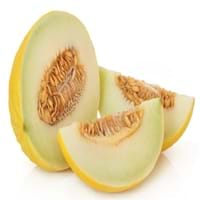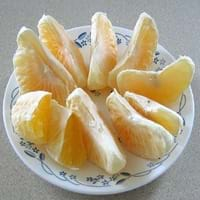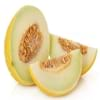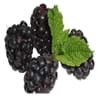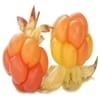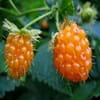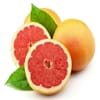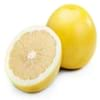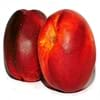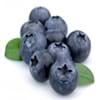Health Benefits
Body hydration, Cancer prevention, Gout treatment, Heart care, Treatment of skin Diseases
Increases metabolic rate, Lower blood pressure, Protects against kidney stone formation
General Benefits
Body hydration, Controls blood pressure, Digestive aid, Eye care, Helps in weight loss, Improves eye vision, Maintains healthy cholesterol level, Strengthens bones
Gives you energy
Skin Benefits
Anti-aging benefits, Brightens and lightens complexion, Hydrates skin, Reduces wrinkles, Treatment of dark spots
Skin cleansing
Hair Benefits
Prevents hair loss, Promotes longer and healthier hair, Protects hair
NA
Allergy Symptoms
Abdominal cramps, Breathing difficulty, Coughing, Diarrhea, Hives, Hoarseness, Itching in eyes, Itching of mouth, Itching sensation in throat, Nasal congestion, Nausea, Skin rash, Wheezing
NA
Side Effects
Allergic reaction
Affects blood glucose levels, Decrease in blood sugar levels, Coagulation
Best Time to Eat
As a snack in the late afternoon, Don't consume at night and before bed, Eat the fresh ones, avoid mixing with any other foods, don't eat after meal., Morning time (before lunch)
As a snack in the late afternoon, Eat the fresh ones, avoid mixing with any other foods, don't eat after meal., Morning time (before lunch)
Vitamin A (Retinol)
Not Available
Vitamin B1 (Thiamin)
Not Available
Vitamin B2 (Riboflavin)
Not Available
Vitamin B3 (Niacin)
Not Available
Vitamin B5 (Pantothenic Acid)
Not Available
Vitamin B6 (Pyridoxin)
Not Available
Vitamin B9 (Folic acid)
Not Available
Vitamin C (Ascorbic Acid)
Vitamin E (Tocopherole)
Not Available
Vitamin K (Phyllochinone)
Not Available
Lutein+Zeaxanthin
Not Available
Water Content
Not Available
Calories in Fresh Fruit with Peel
Not Available
Calories in Fresh Fruit without Peel
Not Available
Calories in Frozen Form
Not Available
Calories in Dried Form
Not Available
Calories in Canned Form
Not Available
Not Available
Calories in Pie
Not Available
Varieties
Green Flesh, Yellow Rind and Orange Flesh
NA
Color
Green, Yellow
Orange, Yellow
Inside Color
Light Green
Creamy Yellow
Grows on
Not Available
Trees
Soil Type
Sandy loam, Well-drained
Loamy
Climatic Conditions
Warm
Warm
Facts about
- The average weight of honeydew melon is 6 pounds.
- 90% of a honeydew is water.
- In middle east countries, dried and roasted honeydew seeds are consumed as snacks.
- Honeydew melons can be 15-22 mm long.
- The name is derived from the word "ugly" refering to the it's unpleasant appearance, with rough, wrinkled, greenish-yellow rind, wrapped loosely around the orange pulpy citrus inside.
Top Producer
China
Jamaica
Other Countries
Brazil, Egypt, India, Iran, Mexico, Morocco, Spain, Turkey, United States of America
NA, United States of America
Top Importer
Not Available
Europe
Top Exporter
Not Available
Jamaica
Botanical Name
Cucumis melo
Citrus reticulata × Citrus paradisi
Synonym
Not Available
Tangelo, citrus tangelo
Subkingdom
Tracheobionta
Tracheobionta
Division
Magnoliophyta
NA
Class
Magnoliopsida
Unknown
Subclass
Dillenhidae
Rosidae
Order
Cucurbitales
Sapindales
Family
Cucurbitaceae
Rutaceae
Species
C. melo
C. reticulata × paradisi
Generic Group
Gourd
Citrus fruit
Difference Between Honeydew and Ugli fruit
We might think that Honeydew and Ugli fruit are similar with respect to nutritional value and health benefits. But the nutrient content of both fruits is different. Honeydew and Ugli fruit Facts such as their taste, shape, color, and size are also distinct. The difference between Honeydew and Ugli fruit is explained here.
The amount of calories in 100 gm of fresh Honeydew and Ugli fruit with peel is Not Available and 45.00 kcal and the amount of calories without peel is 36.00 kcal and Not Available respectively. Thus, Honeydew and Ugli fruit belong to Low Calorie Fruits and Low Calorie Fruits category.These fruits might or might not differ with respect to their scientific classification. The order of Honeydew and Ugli fruit is Cucurbitales and Sapindales respectively. Honeydew belongs to Cucurbitaceae family and Ugli fruit belongs to Rutaceae family. Honeydew belongs to Cucumis genus of C. melo species and Ugli fruit belongs to Citrus genus of C. reticulata × paradisi species. Beings plants, both fruits belong to Plantae Kingdom.
